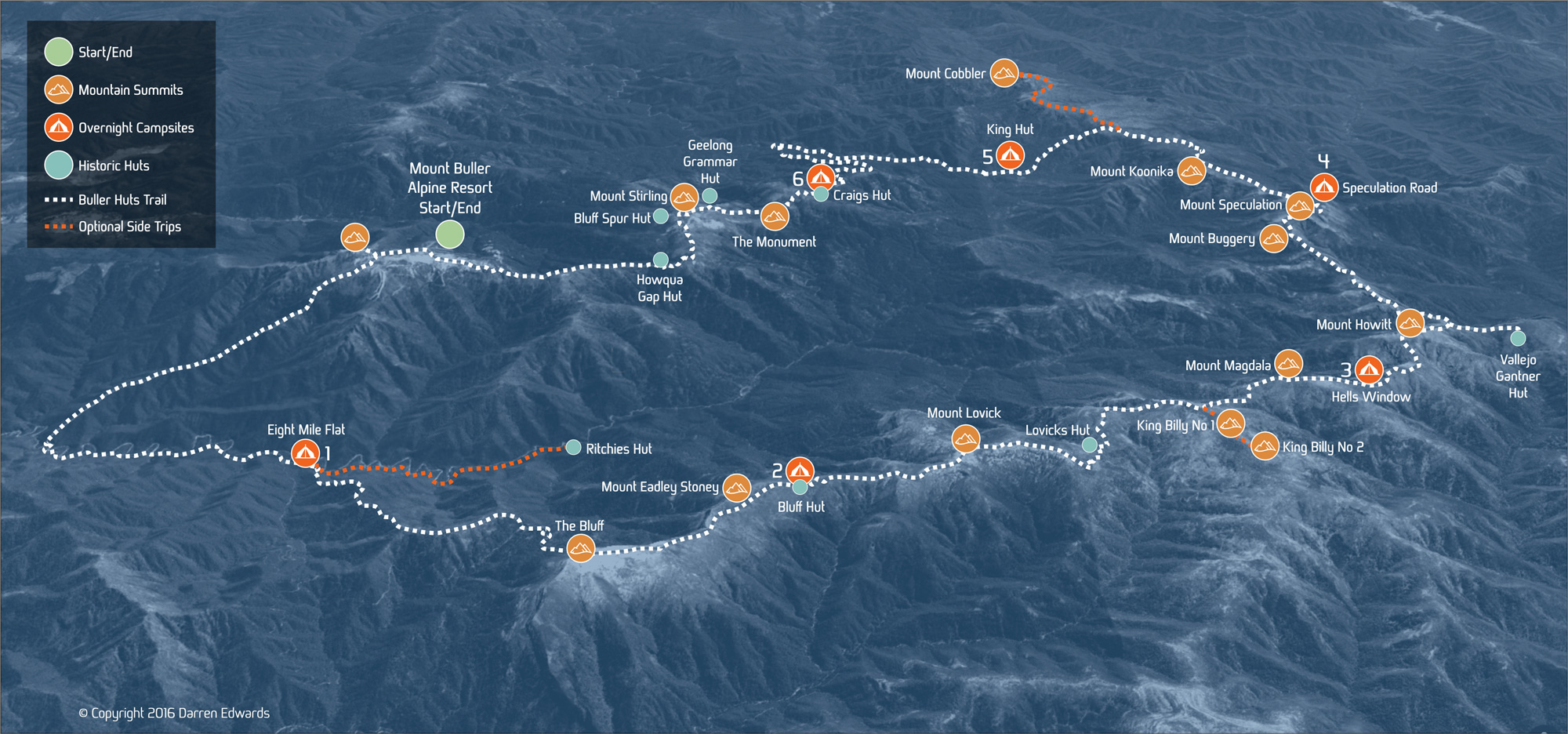Significant heritage value.
What are Victoria’s High Country huts?
Huts of all shapes and sizes were built in the Victorian high country from the mid 1800s by cattle musterers, fishermen, miners, loggers, forest rangers and more recently ski and bushwalking groups. Most early ones were built using materials at hand, and with basic tools. Many have long gone, but huts are still scattered all over the alpine and high country area of Victoria. Many huts now have significant heritage value. They are a reminder of the struggles of our forebears to glean a living from a harsh land.
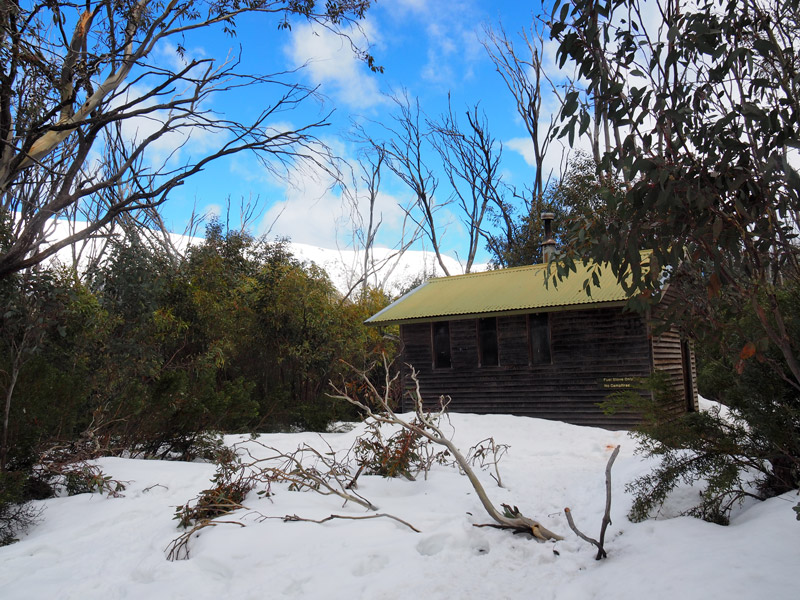
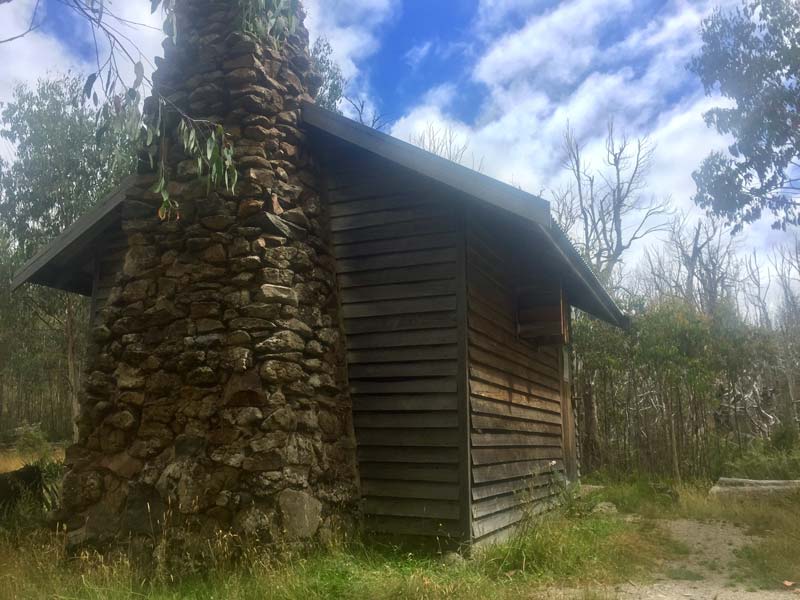
A Unique Piece of History
Scattered throughout Victoria’s alpine region are hundreds of historic huts built by a wide variety of groups including graziers, prospectors, the Forests Commission, Country Roads Board, utility providers, and recreational users such as ski and hiking groups.
The huts were built to provide shelter and refuge in remote areas with whatever bush materials were at hand or could be carried in, such as corrugated iron.
A Refuge in the Wilderness
Use of High Country Huts
The Buller Huts Trail offers a chance to experience Victoria’s historic high country huts, lovingly restored by the Victorian High Country Huts Association (VHCHA) and its incredible volunteers. Sadly, some people continue to treat these huts with disrespect, still believing they’re meant for overnight accommodation. This is not the case. Huts are for emergency shelter only.
It is disgraceful that some outdoor enthusiasts tag huts with graffiti (good on ya Dave) or leave their rubbish behind. Please use common sense, consideration, and respect when camping near or using huts for temporary shelter. Follow the code of conduct.
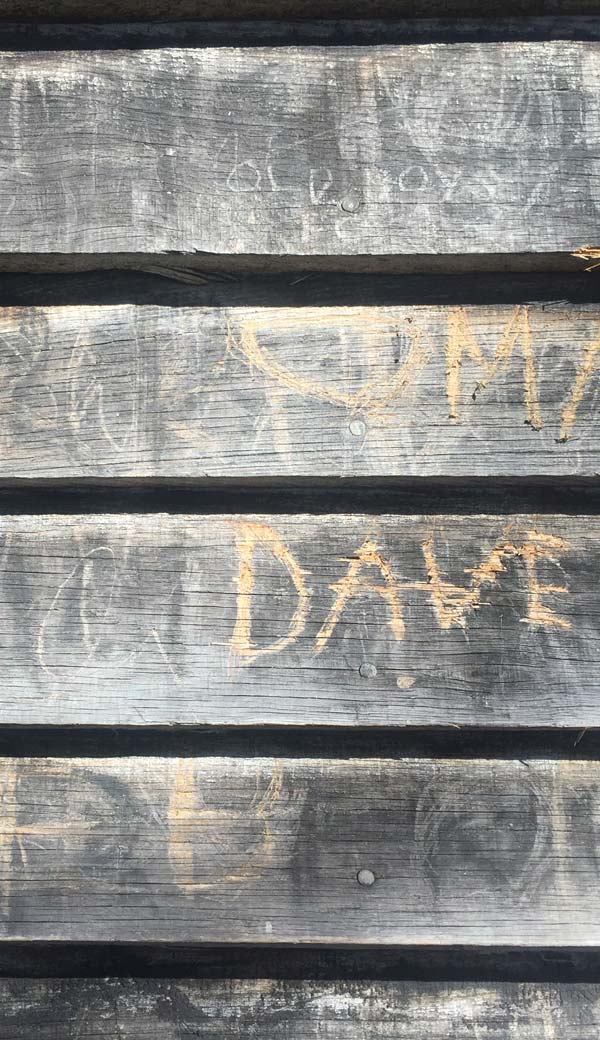
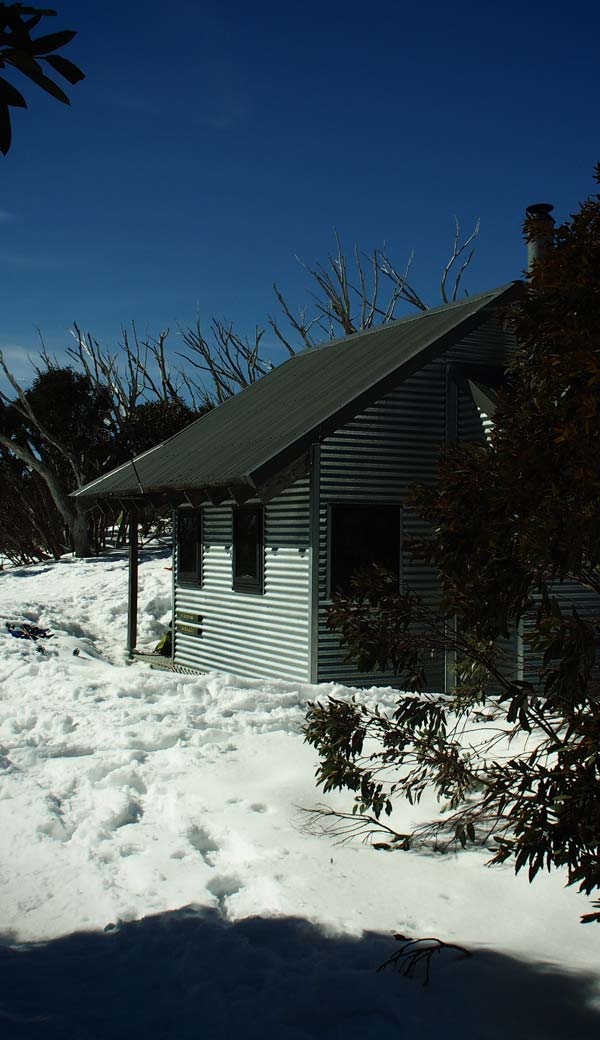
Code of Conduct
General guidelines
- Use huts for shelter only, not for accommodation. Most huts have flat grassy areas nearby which are perfect for pitching a tent
- Cook with fuel stoves and keep fires to a minimum. This is not so much because of the fire risk, but to maintain a supply of firewood for emergency situations. In popular camping areas it can be a long walk to find firewood. (Some huts are in fuel-stove-only areas)
- Don’t exhaust the supply of matches in huts and replace any firewood that you use
- Collect water upstream from huts and always boil it just in case
- Don’t spoil any available water supply by washing yourself or cooking equipment in it
- Observe toilet etiquette. Dig a hole 150mm deep at least 100m from water and downstream from any camp site. Be sure to fill in the hole after use
- Leave the hut cleaner than when you arrived and take your rubbish with you.
Victorian High Country Huts Code of Conduct
Huts Code of Etiquette
Leave nothing but footprints, take nothing but photos. Huts are a fragile piece of our Australian heritage and require our care and protection to survive.
Huts Are for Temporary Shelter Only
Huts are for temporary, emergency shelter only not for accommodation. Enjoy visiting the huts, but do not use them for overnight accommodation as their cultural values can easily be destroyed. In Victoria some huts are not available for public use.
Never Rely on Reaching A Hut
When mountain weather closes in, huts can be difficult to find. Ensure you are equipped to camp out as blizzards can occur at any time of the year. In severe weather, take shelter before you get wet and tired.
Use A Fuel Stove
Using fuel stoves for cooking reduces firewood consumption around huts. Some areas are designated fuel stove only. Escaping fires will severely damage the delicate environment, and firewood can be scarce or even non-existent above the tree line.
Leave the Hut Clean And Secure
Leave the hut as you would like to find it. Check that the fire is out, restock dry firewood and close the door and windows securely. Don’t leave emergency food stores in the huts, they clutter up the hut and encourage rats.
Keep Fires Small
Please keep fires small and within existing fireplaces. Never leave the fire unattended and ensure it is out before leaving. If you need to light a fire in an emergency or to keep warm, make sure you keep it small. If you have to light a fire be sure that you replenish all used firewood as someone may need it in an emergency.
Log Books May Save Your Life
If you fill in the book in the hut, stating the details of your journey, number in the party and intentions it may assist in search and rescue operations. If the log book is full, please inform the park ranger or VHCHA and it will be replaced.
Respect Heritage
Huts contain evidence of its past and the people that built and used them. Huts were also often located in areas which were used as camp sites by Aboriginal people, so please do not do anything to disturb the environs around huts.
Got To ‘Go’?
Use a toilet or take a walk – at least 100m from hut and campsites. Dig 15 cm deep and cover well.
Collecting Water
Collect water from upstream of the hut to avoid possible pollution. Boil water for at least five minutes to avoid gastroenteritis and giardia.
Pack It In, Pack It Out
Pack to minimise rubbish, don’t take potential rubbish such as bottles, cans and excess packaging. Don’t bury any rubbish. It is often dug out by native animals and may harm them.
Carry on The Tradition
Huts have always been left unlocked, stocked with matches and a small amount of dry firewood and kindling. People generally looked after each other. They needed to if they were to survive the rigours of mountain life. This tradition, maintained today, has helped many people in trouble and will undoubtedly help more, maybe even you.

